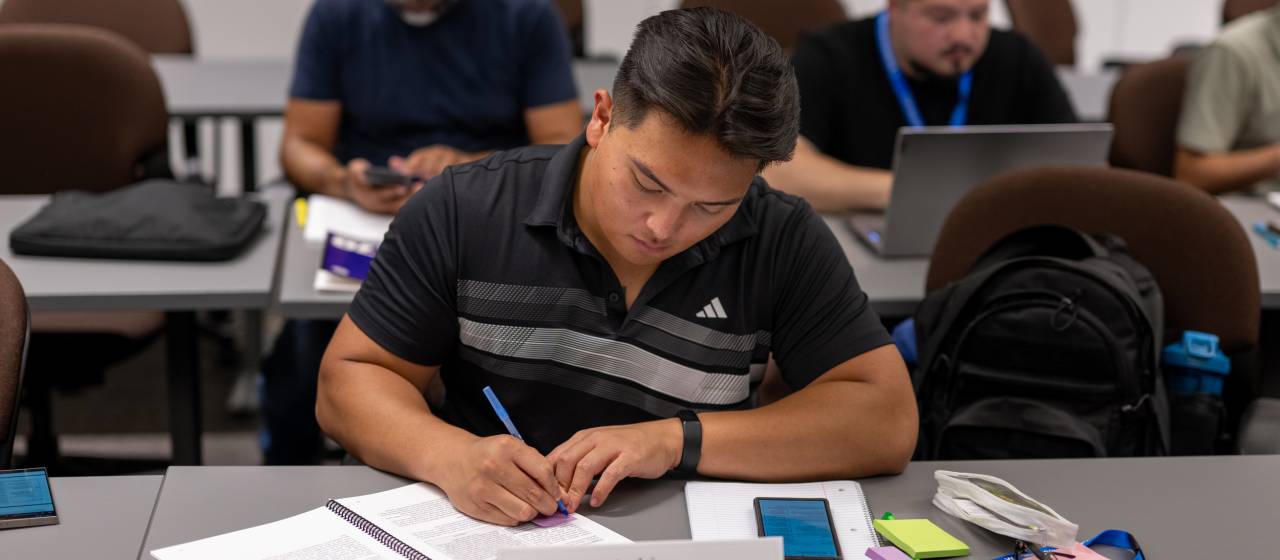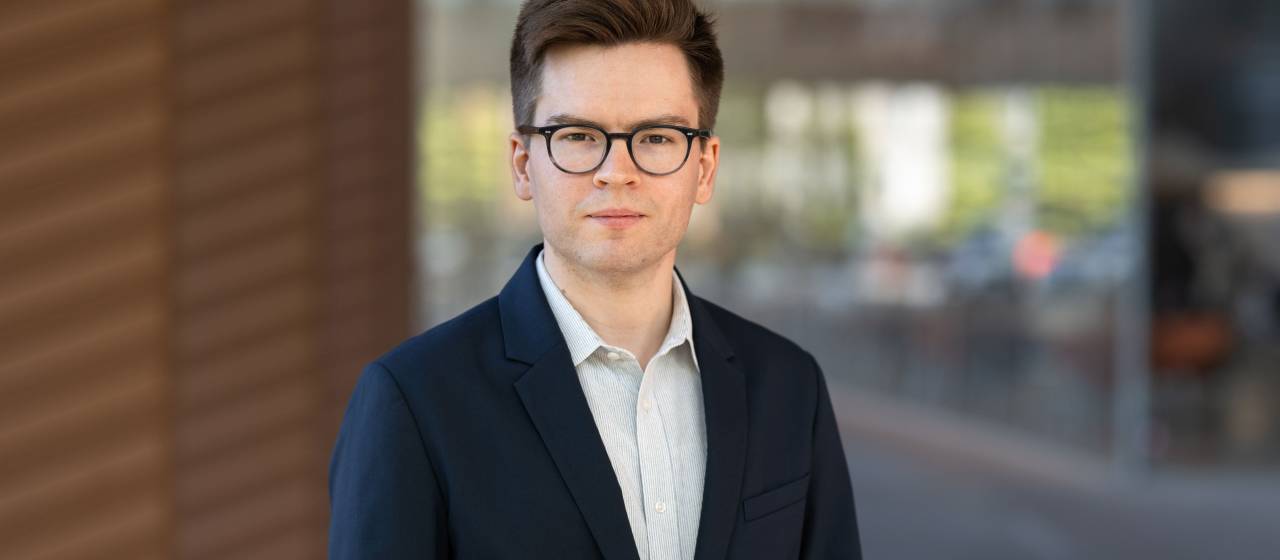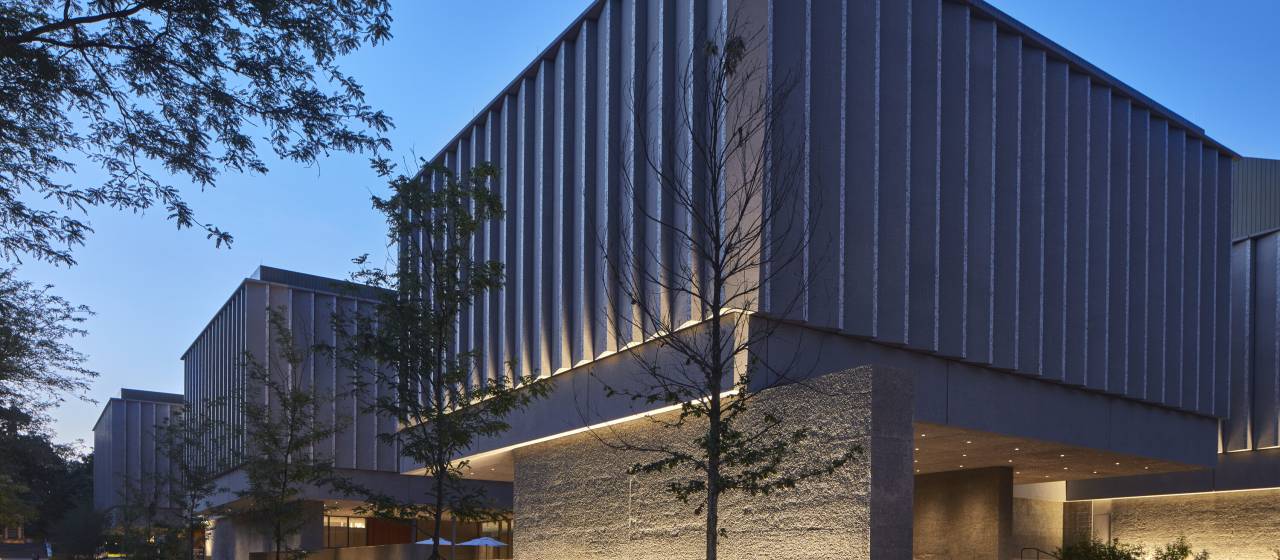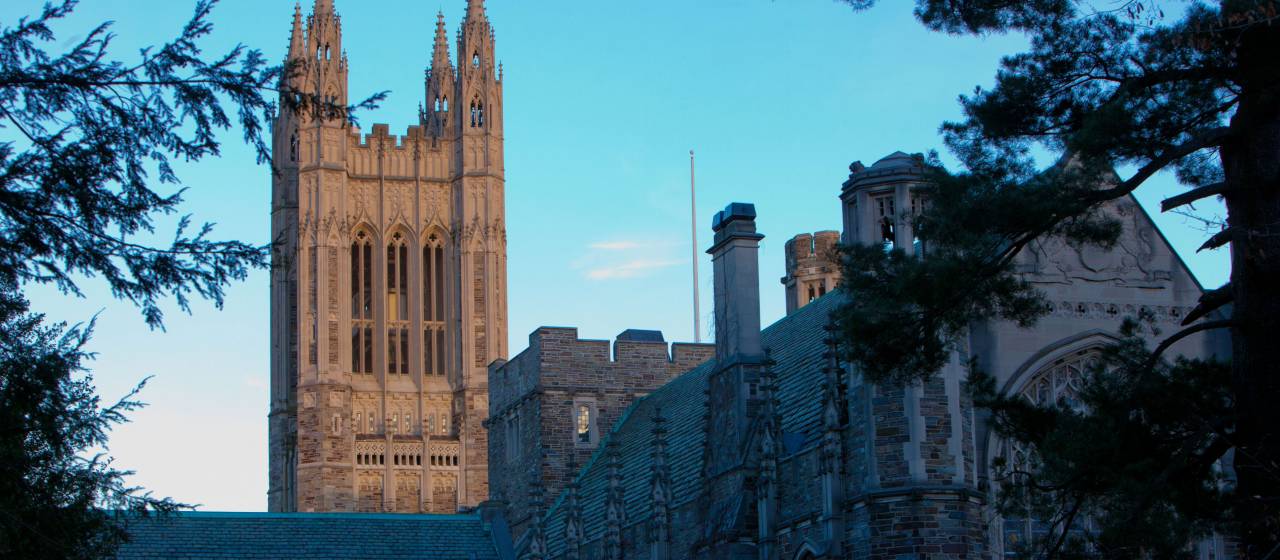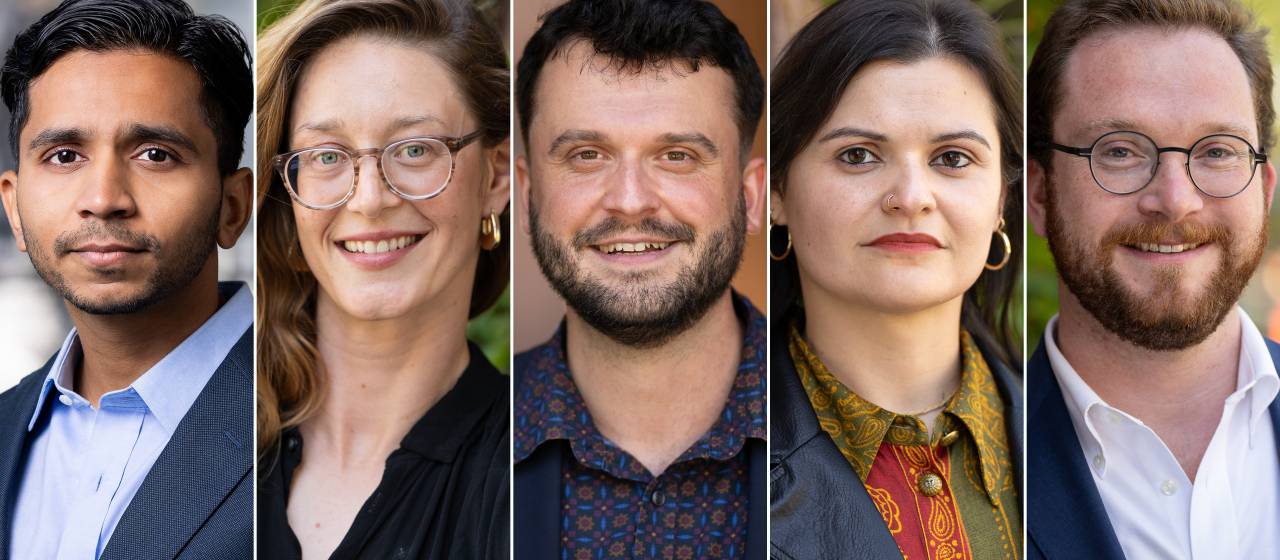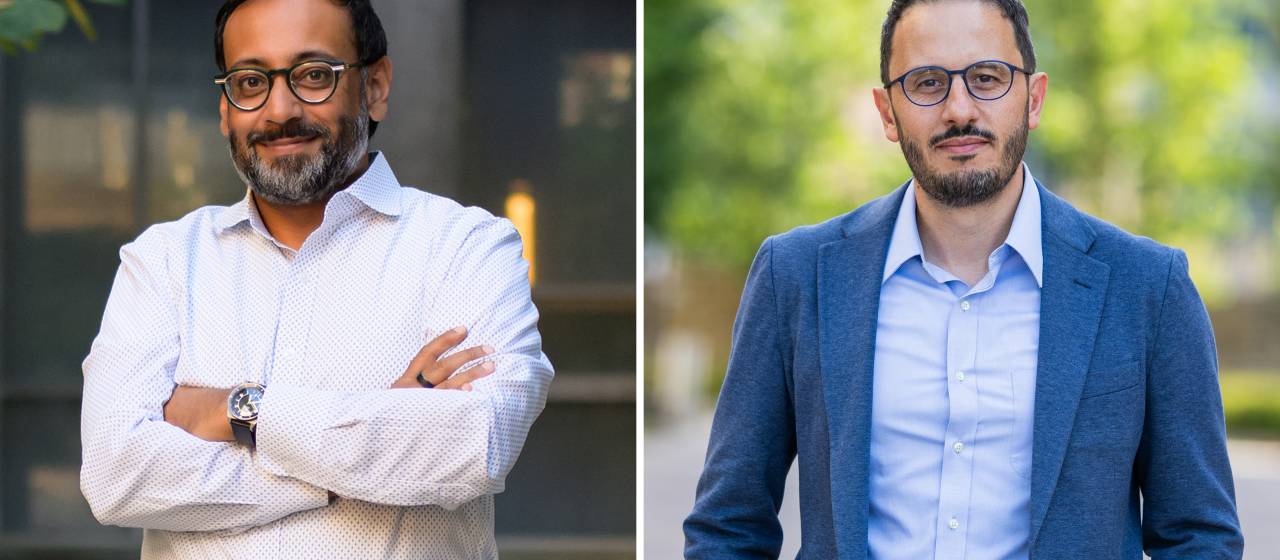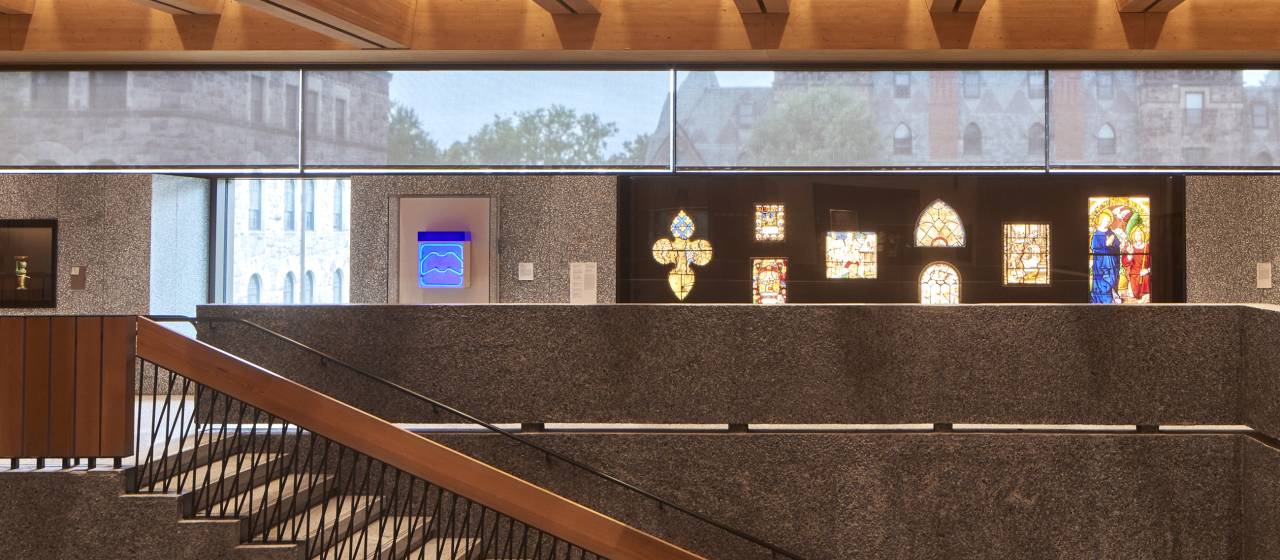Warrior-Scholar Project 2025: 'Fueled by the pursuit and discussion of knowledge'
After he enlisted in the U.S. Air Force, Staff Sgt. Audrian Gutierrez did not envision a traditional residential college experience as part of his career path. Gutierrez, who works in cryptology for the National Security Agency, currently takes classes online through the University of Maryland Global Campus.
A weeklong academic boot camp at Princeton through the Warrior-Scholar Project opened his mind to that prospect, following his military service.
"One day, you will be hanging up a uniform," said Gutierrez, who plans a 20-year military career. "I think this program has been really eye-opening.”
Warrior-Scholar Project is a national nonprofit that hosts academic boot camps supporting U.S. military veterans and service members pursuing pathways to higher education at competitive four-year colleges like Princeton. It offers a rigorous academic curriculum and unique access to the University’s professors and resources.
"This is my first time in a classroom setting being able to converse directly with my instructors,” Gutierrez said. The experience crystalized for him “what it feels like to be a college student — fueled by the pursuit and discussion of knowledge. It was a chance to go down paths of thought that I wouldn't normally choose.”
Gutierrez said WSP-Princeton sparked both his patriotism and a newfound curiosity about one day enrolling at a competitive residential college.

Princeton hosted the weeklong academic boot camp from July 19 to 26 in partnership with Warrior-Scholar Project, a national nonprofit supporting U.S. military veterans and service members in pursuing pathways to higher education at competitive four-year colleges. Since 2017, 127 veterans have completed the WSP-Princeton boot camp.
Uniting education and service at Princeton
In its ninth year, WSP-Princeton hosted 16 transitioning service members and enlisted veterans on campus from July 19 to 26 for an intensive humanities college preparatory course exploring the connections between American democracy and military service.
Warrior-Scholar Project has equipped over 2,500 veterans and service members across the country with the skills and support to pursue undergraduate studies at competitive four-year colleges and universities like Princeton. In addition to the humanities, WSP also runs programs in STEM and business on U.S. college campuses.
Keith Shaw, deputy director of the Emma Bloomberg Center for Access & Opportunity, said WSP “is always a highlight of my year, mostly because of the bright, energetic, curious student veterans I get to work with. It’s a fantastic opportunity for Princeton to share some of what’s special about our liberal arts curriculum with some amazing students.
“WSP has cultivated a thriving national student veteran community that persists well beyond any one student’s boot camp experience,” he said.
Since the WSP-Princeton partnership began in 2017, 127 veterans have completed the free boot camp at Princeton.
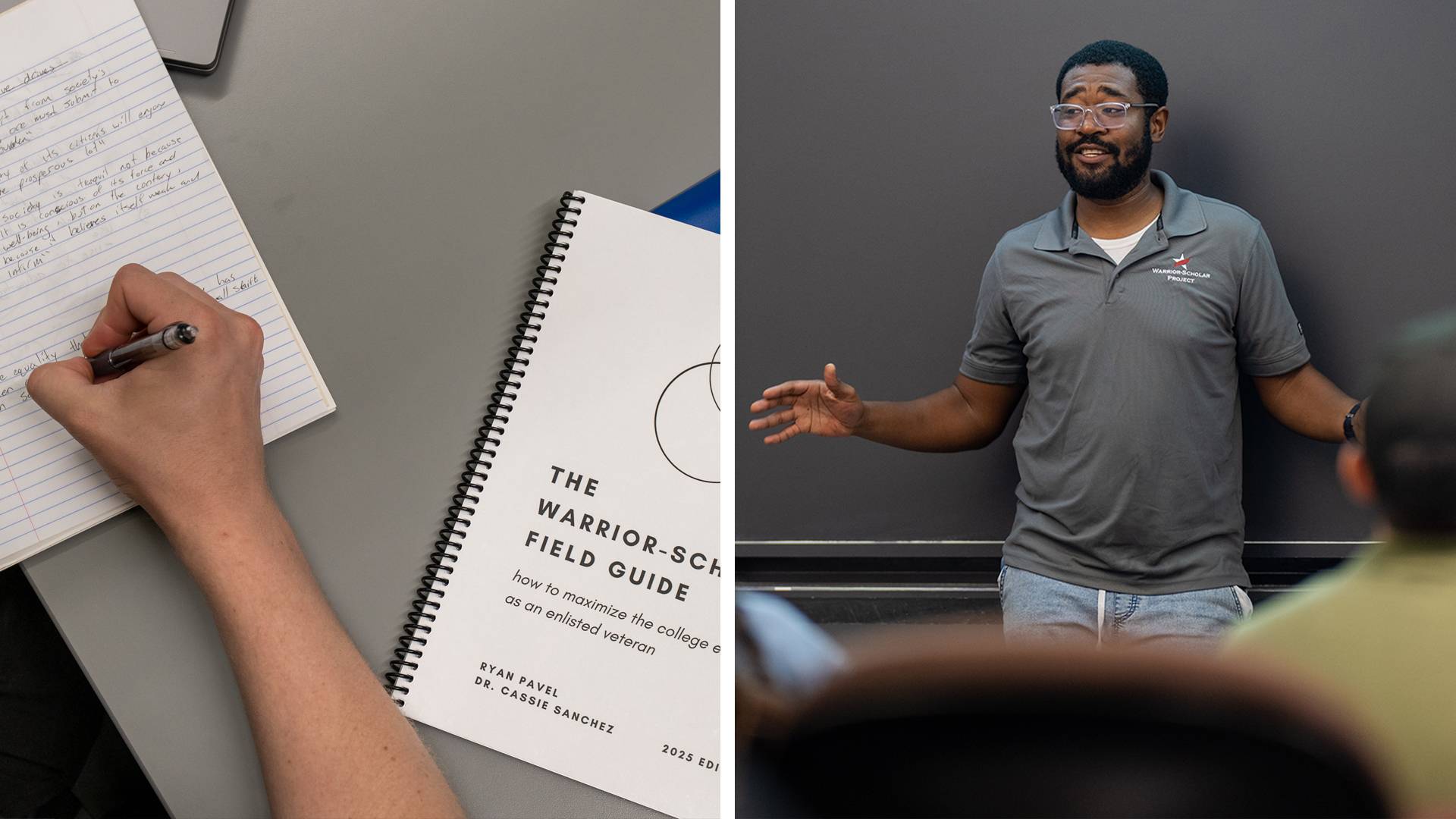
"We've got a couple of folks in our cohort that have literally traveled across the world to be here, just to be in a classroom environment again and have access to outstanding professors," said WSP lead fellow Seth Earl Jenkins, right, who served as a staff sergeant in the U.S. Air Force for six years and graduated from WSP-Princeton's 2022 humanities and STEM cohort.
The Warrior-Scholar Project experience
During the week, participants attend lectures and workshops led by Princeton faculty and staff, receive near-peer mentoring from student veteran alumni of the program known as fellows, and write a final paper. WSP fellows also lead group discussions with participants on the transition from the military to campus life as student veterans, covering social and academic factors from campus culture to college applications.
Seth Earl Jenkins is a WSP lead fellow who served for six years in the U.S. Air Force as a staff sergeant and aerospace ground equipment mechanic. Now a rising senior at Vassar College, he has returned as a fellow every year since he attended WSP-Princeton as part of the 2022 humanities and STEM cohort.
WSP programs provide service members and veterans who have been away from the traditional classroom environment for years a chance to revisit core academic skills and find community with others who share a dedication to service and education, he said.
"We've got a couple of folks in our cohort that have literally traveled across the world to be here, just to be in a classroom environment again and have access to outstanding professors," he said.
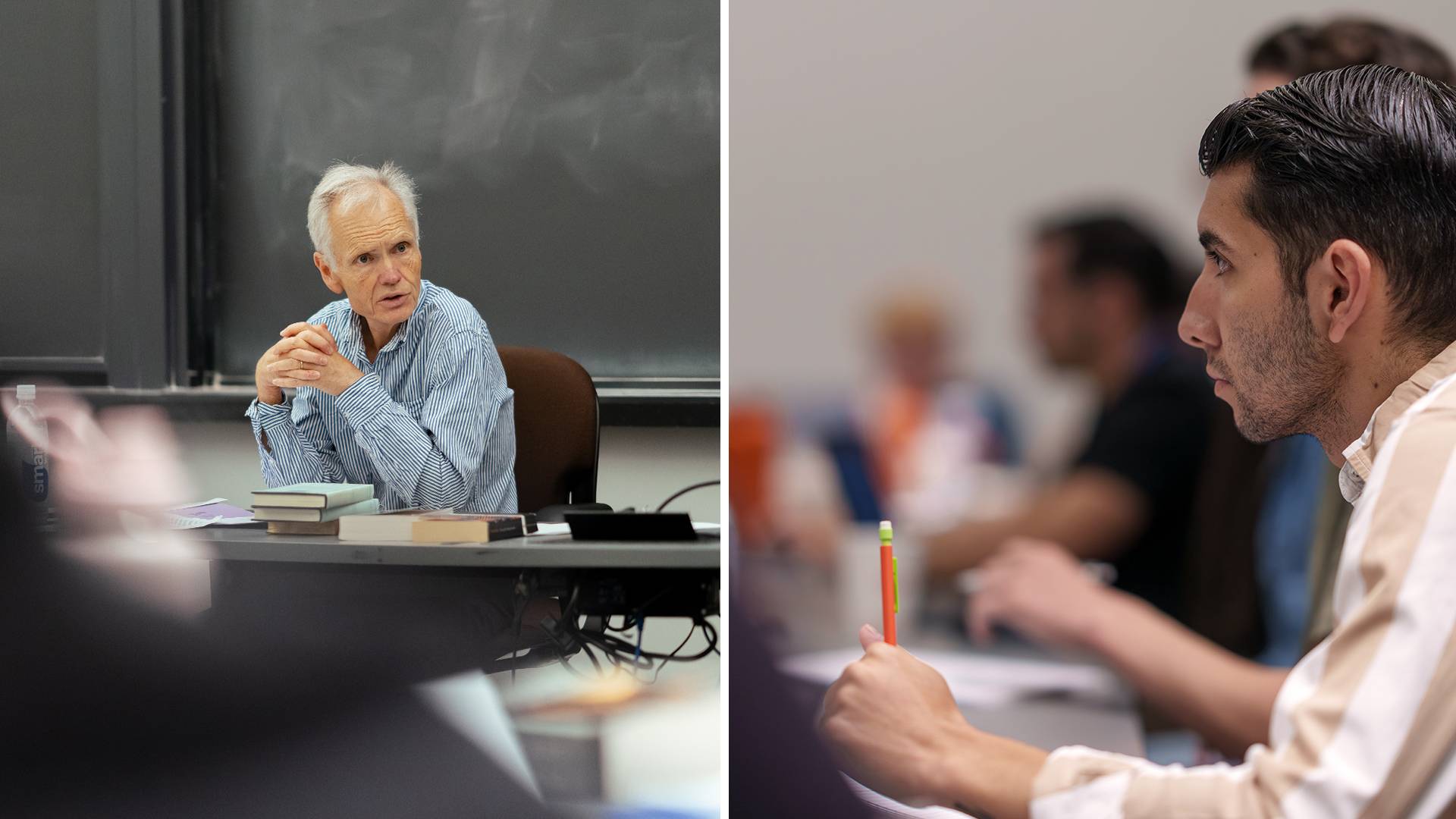
During the week, participants like Elijah Reyes, right, who served as a petty officer third class in the U.S. Navy, attended lectures and workshops led by Princeton faculty and staff. This year's humanities program focused on seminal texts that have shaped democracy from Ancient Greece to America. Andrew Feldherr, the Giger Professor of Latin and a professor of classics, left, encouraged participants to engage with ancient texts as a way of learning “how to read history.”
Democracy in the classroom
Participants in this year’s program read and discussed seminal texts that have shaped and spanned democracy from Ancient Greece to America, including the U.S. Constitution and the Declaration of Independence. They attended seminars on constitutional frameworks and modern democratic citizenship, and learned from Princeton faculty members including Andrew Feldherr, the Giger Professor of Latin and a professor of classics, and Peter Wirzbicki, an associate professor of history.
In his lecture on the “Origins of Democracy,” Feldherr emphasized to this year's WSP-Princeton cohort how the democratic principles of the U.S. Constitution that participants are sworn to defend are rooted in accounts of Athenian democracy from the fifth-century Greek historians Herodotus and Thucydides. Feldherr encouraged the participants to engage with those ancient texts as a way of learning “how to read history.”
“I think a lot of people who haven't had experience reading classical texts have a certain number of misconceptions about what makes you choose to devote your life to them and what makes them interesting to read, and I want to model an approach to the classics that isn't about them having all the answers,” he said.
“I want you to realize that these texts are a conversation, both in their original context” and in modern understandings, Feldherr added. “We're talking back, answering questions.”

Aniysa Thorne, who served as a sergeant in the U.S. Army for seven years, is a senior at DeSales University and called WSP "a portal to the American dream."
‘A portal to the American dream’
Aniysa Thorne, a senior at DeSales University, served in the U.S. Army as a sergeant for seven years. She is now preparing to apply to law school.
Thorne said the program’s focus on democracy connected with her military service and her post-graduation plans, giving her a deepened understanding of government, politics and history.
“I would say WSP is a portal to the American dream, just like I believe the military is a portal to the American dream.”

Warrior-Scholar Project has equipped over 2,500 veterans and service members across the country with the skills and support to pursue undergraduate studies at competitive four-year colleges and universities like Princeton. Keith Shaw, deputy director of the Emma Bloomberg Center for Access & Opportunity, said, "WSP has cultivated a thriving national student veteran community that persists well beyond any one student’s boot camp experience."
Latest Princeton News
- Michael Skinnider wins 2025 Packard Foundation Fellowship
- A ‘town square for the arts and humanities’: The new Princeton University Art Museum shares opening details
- The ‘Many Minds, Many Stripes’ conference celebrating Graduate School alumni is underway on campus
- Society of Fellows in the Liberal Arts welcomes new scholars
- Princeton alumni Nabarun Dasgupta '00 and Sébastien Philippe *18 win MacArthur 'genius' grants
- Venture Forward gifts name multiple spaces within the new Princeton University Art Museum



